Philip Hammond has delivered his second Budget as chancellor. Here are the key points of his speech.
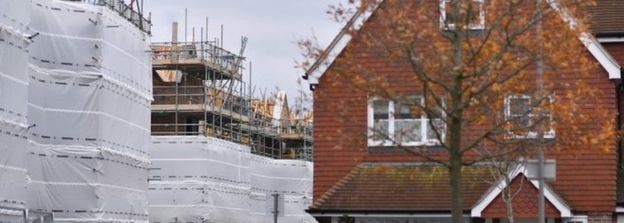 PA
PAStamp duty and housing
- Stamp duty to be abolished immediately for first-time buyers purchasing properties worth up to £300,000
- To help those in London and other expensive areas, the first £300,000 of the cost of a £500,000 purchase by all first-time buyers will be exempt from stamp duty, with the remaining £200,000 incurring 5%.
- 95% of all first-time buyers will benefit, with 80% not paying stamp duty
- Reduction will apply immediately in England, Wales and Northern Ireland although the Welsh government will have to decide whether to continue it when stamp duty is devolved in April 2018
- It will not apply in Scotland unless Scottish government decides to follow suit
- £44bn in overall government support for housing to meet target of building 300,000 new homes a year by the middle of the next decade
- Councils given powers to charge 100% council tax premium on empty properties
- Compulsory purchase of land banked by developers for financial reasons
- £400m to regenerate housing estates and £1.1bn to unlock strategic sites for development
- Review into delays in developments given planning permission being taken forward
- £28m for Kensington and Chelsea council to provide counselling services and mental health support for victims of the Grenfell fire and for regeneration of surrounding area
- New homelessness task force

 PA
PAAlcohol, tobacco and fuel
- Tobacco will continue to rise by 2% above Retail Price Index (RPI) inflation, equivalent to 28p on a pack of 20, while the minimum excise duty on cigarettes introduced in March will also rise
- Duty on hand-rolling tobacco will increase by additional 1%
- Duty on beer, wine, spirits and most ciders will be frozen, equating to 1p off a pint of beer and 6p of a typical bottle of wine
- But duty on high-strength "white ciders" to be increased in 2019 via new legislation
- Fuel duty rise for petrol and diesel cars scheduled for April 2018 scrapped
- Vehicle excise duty for cars, vans and motorcycles registered before April 2017 to rise by inflation
- Vehicle excise duty for new diesel cars not meeting latest standards to rise by one band in April 2018
- Tax hike will not apply to van owners
- Existing diesel supplement in company car tax to rise by 1%
- Proceeds to fund a new £220m clean air fund for pollution hotspots in England
- What the Budget 2017 means for you
- What does the diesel change mean for you?
- Why is white cider being taxed more?

 PA
PAPersonal taxation and wages
- Tax-free personal allowance on income tax to rise to £11,850 in line with inflation in April 2018
- Higher-rate tax threshold to increase to £46,350
- Short-haul air passenger duty rates and long-haul economy rates to be frozen, paid for by an increase on premium-class tickets and on private jets
- National Living Wage to rise in April 2018 by 4.4%, from £7.50 an hour to £7.83.

The state of the economy
 GETTY IMAGES
GETTY IMAGES- Growth forecast for 2017 slashed from 2% to 1.5%
- Forecasts for 2018, 2019, 2020 and 2021 revised down to 1.4%, 1.3%, 1.5% and 1.6% respectively.
- Productivity growth revised down by an average of 0.7% a year up to 2023
- Annual rate of CPI inflation forecast to fall from peak of 3% towards 2% target later this year
- Another 600,000 people forecast to be in work by 2022
- £3bn to be set aside over next two years to prepare UK for every possible outcome as UK leaves EU

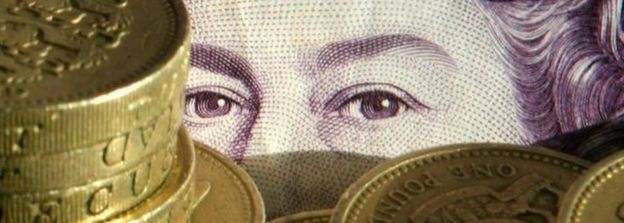 PA
PAThe state of the public finances
- Annual government borrowing £49.9bn this year, £8.4bn lower than forecast in March
- Borrowing forecast to fall in real terms in the subsequent five years from £39.5bn in 2018-19 to £25.6bn in 2022-23.
- But projected borrowing has been revised up for 2019-2020, 2020-2021 and 2021-22, compared to March, due to the weaker economic outlook and expected lower tax yields
- Public sector net borrowing forecast to fall from 3.8% of GDP last year to 2.4% this year, then 1.9%, 1.6%, 1.5% and 1.3% in subsequent years, reaching 1.1% in 2022-23.
- Debt will peak at 86.5% of GDP this year, then fall to 86.4% next year; then 86.1%, 83.1% and 79.3% in subsequent years, reaching 79.1% in 2022-23.

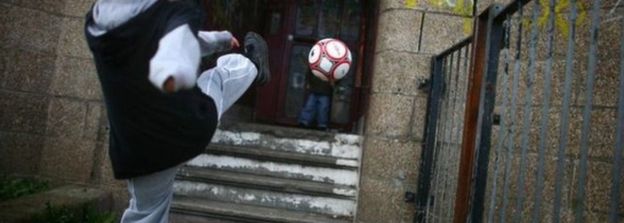 GETTY IMAGES
GETTY IMAGESWelfare and pensions
- £1.5bn package to "address concerns" about the delivery of universal credit
- Seven-day initial waiting period for processing of claims to be scrapped
- Claimants to get 100% advance payments within five days of applying from January
- Typical first payment will take five weeks rather than current six
- Repayment period for advances to increase from six to 12 months.
- New universal credit claimants in receipt of housing benefit to continue to receive it for two weeks

Business and digital
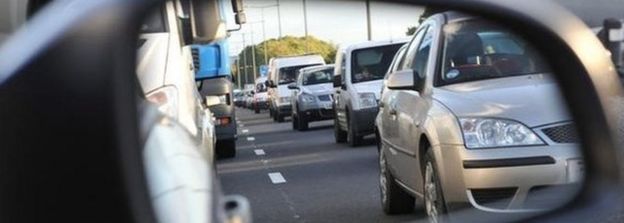 PA
PA- VAT threshold for small business to remain at £85,000 for two years
- £500m support for 5G mobile networks, full fibre broadband and artificial intelligence
- £540m to support the growth of electric cars, including more charging points
- A further £2.3bn allocated for investment in research and development
- Rises in business rates to be pegged to CPI measure of inflation, not higher RPI, a cut of £2.3bn
- Digital economy royalties relating to UK sales which are paid to a low-tax jurisdiction to be subject to income tax as part of tax avoidance clampdown. Expected to raise about £200m a year
- Capital gains tax relief for overseas buyers of UK commercial property to be phased out, with exemptions for foreign pension funds
- Charges on single-use plastic items to be looked at
- £30m to develop digital skills distance learning courses
- Business rate rises to be eased
- Tech giants targeted over VAT payments
- Research money central to Budget

Education and health (England only)

- £40m teacher training fund for underperforming schools in England. Worth £1,000 per teacher
- 8,000 new computer science teachers to be recruited at cost of £84m and new National Centre for Computing to be set up
- Secondary schools and sixth-form colleges to get £600 for each new pupil taking maths or further maths at A-level and core maths at an expected cost of £177m
- £2.8bn in extra funding for the NHS in England
- £350m immediately to address pressures this winter, £1.6bn for 2018-19 and the remainder in 2019-20
- £10bn capital investment fund for hospitals up to 2022
- No extra funding for nurses pay but a guarantee that if future pay rises are recommended by independent body, there will be new money

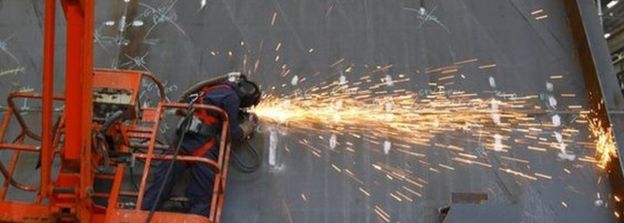 PA
PANations/infrastructure/transport/regions/science
- £320m to be invested in former Redcar steelworks site
- Further devolution of powers to Greater Manchester
- £1.7bn city region transport fund, to be shared between six regions with elected mayors and other areas
- £30m to improve mobile and digital connectivity on TransPennine rail route.
- £2bn for Scottish government, £1.2bn for Welsh government and £650m for Northern Ireland executive
- Scottish police and fire services to get refunds on VAT from April 2018
- Young person's railcard extended to 26-30-year-olds, giving a third off rail fares
- Hammond scraps police and fire VAT bills
- Budget gives extra £1.2bn to Wales
- Extra £650m for Northern Ireland in Budget






0 comments:
Post a Comment